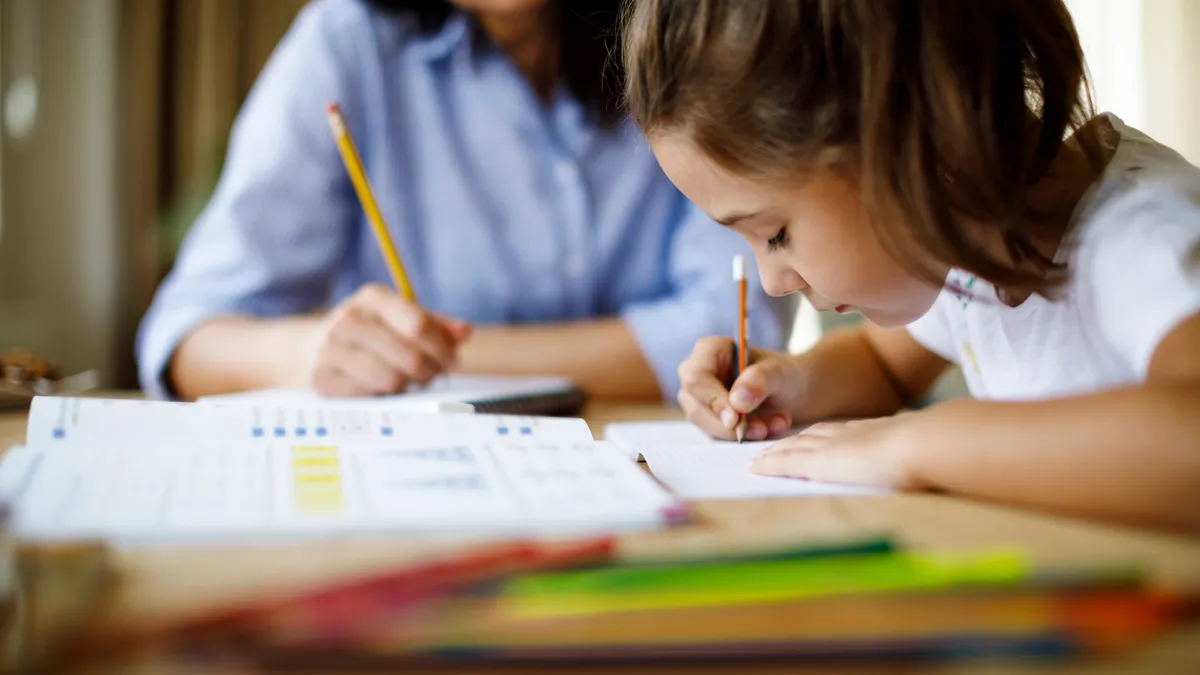Dive Brief:
- High-dosage tutoring conducted during the school day had a "large and positive" impact on student learning, according to a study released Wednesday by the University of Chicago Education Lab and MDRC, a nonprofit research and policy organization.
- Students participating in personalized, consistent tutoring in Chicago Public Schools and Fulton County Schools in Georgia gained two-thirds of a school year of learning in math during the 2022-23 school year, the analysis found.
- The report builds upon previous research showing the effectiveness of high-dosage tutoring. Meanwhile, school and district administrators continue to be challenged by the logistics of providing tutoring during the school day and are concerned about sustaining tutoring investments as federal COVID-19 emergency funding for K-12 tapers off this year.
Dive Insight:
Many school districts invested Elementary and Secondary School Emergency Relief funds to address pandemic-related learning loss.
More than 80% of public schools reported offering some type of tutoring support this school year, according to findings from the National Center for Education Statistics' School Pulse Panel. And of those schools providing high-dosage tutoring, about 75% said it was moderately, very or extremely effective, the NCES report found.
For the Chicago-Georgia study, lead author Monica Bhatt said a key takeaway is that tutoring is an effective approach to accelerate student learning. The tutoring should be conducted during school hours at consistent and dedicated times and by trained tutors who provide instructional supports aligned with students' classroom learning goals, said Bhatt, senior research director of the University of Chicago Education Lab.
If schools, districts and states can continue to deliver this kind of instruction, Bhatt said, there's a "fighting chance" of addressing not just pandemic learning loss but also "long-standing disparities along race and class lines that have plagued the U.S. school system for many decades."
Specifically, the study followed 548 students from Chicago Public Schools and 1,506 students from Fulton County Schools. About half of the group from each school system got high-dosage tutoring in math or reading in addition to classroom instruction, while the other half received classroom instruction only.
Across math and reading tutoring programs in the two school districts, the average 5th grader getting tutoring gained a quarter of a school year of learning.
Researchers also partnered with two entities — a mid-sized urban California school district and the New Mexico Public Education Department — but their out-of-school day tutoring programs did not achieve high levels of student participation last school year.
For the California district, the timing of the after-school tutoring program's launch might have factored into low participation. The launch came after the school year began, and families may have already found other after-school programs, the report said.
In New Mexico, only 1.5% of eligible students out of an estimated 34,262 signed up for evening and weekend virtual tutoring sessions. For this school year, however, the state has implemented virtual high-dosage tutoring in a monitored classroom during the school day and is reaching hundreds of students more consistently, according to the study.
Bhatt said the Education Lab will continue studying the impacts of tutoring and specifically how schools are fitting it effectively into the school day. High-dosage tutoring is "by far one of the most promising interventions to accelerate student learning that we have ever studied in education."
"I think now the question is, how can you scale it so that more students benefit and in that scaling, districts [and] states are having to make all kinds of decisions," Bhatt said.
Several organizations have offered resources to help school systems scale up tutoring initiatives. In fact, on Tuesday, Accelerate, an organization that conducts research and provides grants for learning recovery efforts, released a field guide for states that are designing and implementing statewide tutoring programs.












